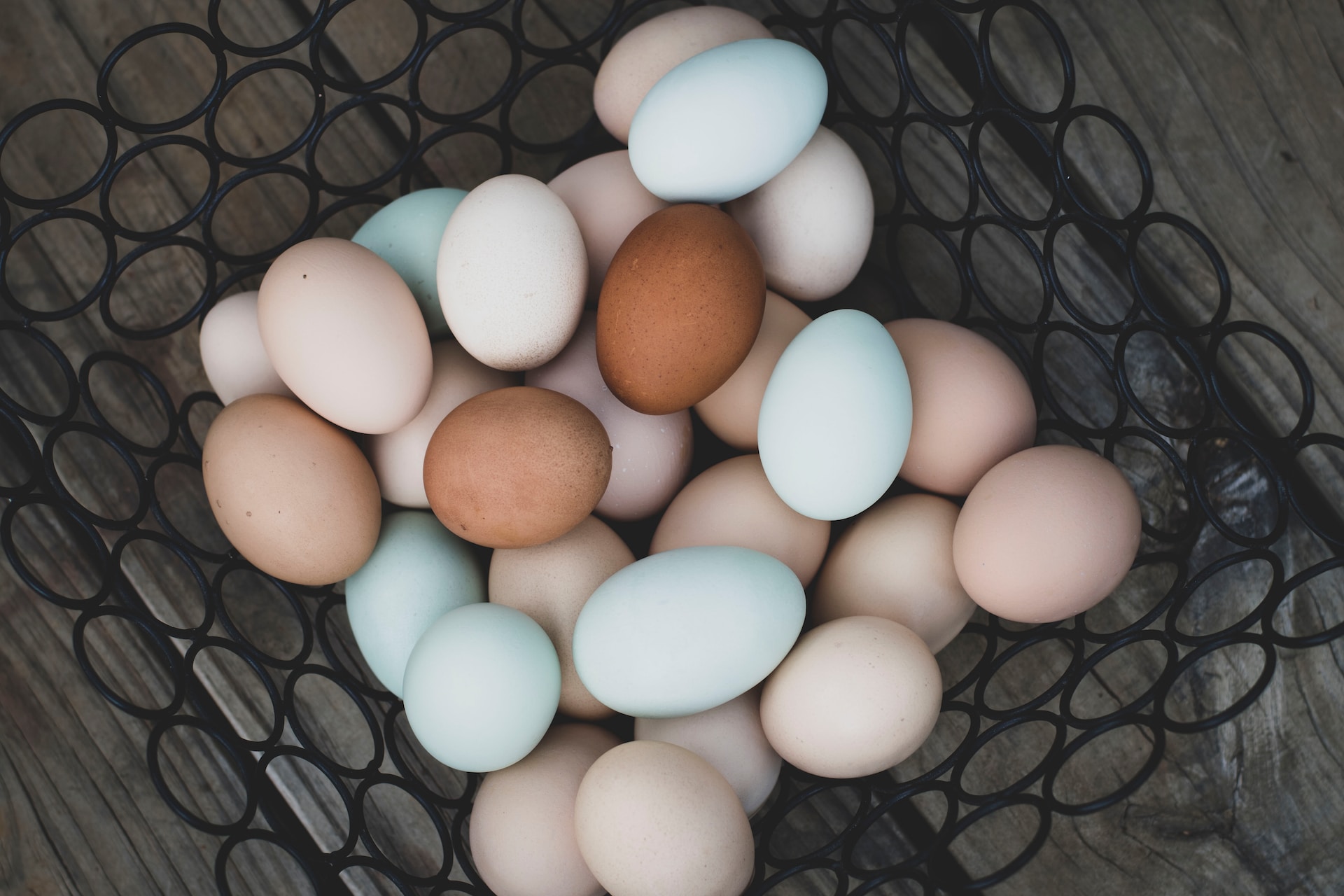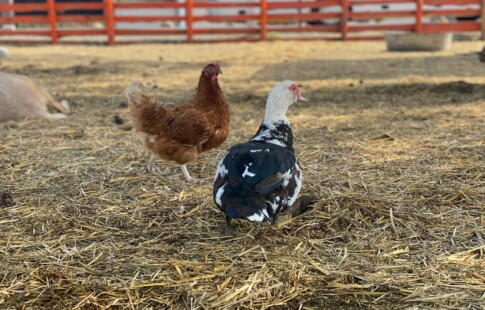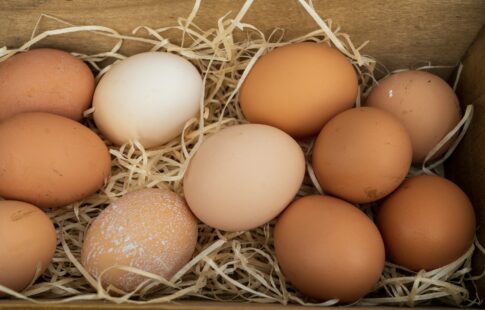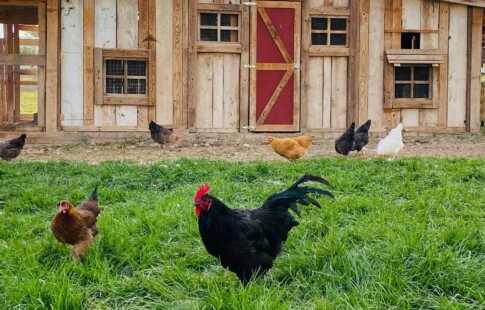
How to Sell Backyard Chicken Eggs
We are reader-supported. When you buy through links on our site, we may earn affiliate commission.
There comes a point in every chicken owner’s life when you realize you’re absolutely sick of eggs. The eggs seem to multiply overnight, and before you know it, you’re scrambling to keep up with your laying hens and begging them to take a break — can’t it just be winter already? If this sounds like you, you should learn how to sell chicken eggs so you can stop trying to incorporate them into every meal. Your stomach will thank you.
First, Know the Rules
In the U.S., individual states have different guidelines for how to sell chicken eggs. For example, in Texas, you must wash the eggs and refrigerate them at 45°F or lower. You’ll need a license to sell them to a retailer or restaurant. If you’re selling at a farmers market, you must label the eggs as ungraded and include your address on the box.
In the United Kingdom, it’s illegal to wash chicken eggs before selling them, which is the opposite of how it is in the U.S. In other words, you need to look up the regulations specific to where you live because they vary wildly from place to place. However, what they all have in common is that they aim to improve food safety and reduce the risk of illness.
Standing Out
Once you understand the laws, how can you entice people to buy your eggs?
Layer After Layer
You’ll need plenty of eggs if you want to start a full-fledged egg business. Certain chicken breeds are prolific layers — think Rhode Island Reds, Australorps, and Buff Orpingtons — while others lay so rarely that you’re surprised when you find an egg in the coop. Look for high-production breeds for the best results.
However, production doesn’t matter as much if you’re selling fertilized hatching eggs. Rare breeds that lay infrequently produce valuable eggs for people looking to hatch their own chickens.
The Bigger, the Better — Usually
Egg size also matters. Bantam eggs may be adorable, but being only slightly larger than quail eggs, they won’t fetch as high of a price for customers looking to make an omelet. Medium to jumbo eggs tend to be worth more.
On the other hand, if you’re actually selling quail eggs, you can often charge more for them than bantam eggs. It’s all about supply and demand, and quail eggs are usually somewhat of a rarity.
Green Eggs and Ham
Another quality that can vastly improve your egg sales is shell color. People go crazy for blue, green, and chocolate brown eggs, especially if you mix them together, Easter-basket style. It’s not that they taste any different — people just like the novelty factor. Anyone can find white eggs at the store, so opening a carton of Ameraucana or Black Copper Maran eggs is exciting.
What’s Inside Counts
Lastly, although scientists have yet to research the flavor of backyard chicken eggs, most customers swear they taste better than the store-bought type.
Many people attribute this quality to the varied diet backyard chickens get to eat, including grass, insects, and grain. A rich diet will also change the color of the egg yolks.
People often interpret orange yolks as a sign that the chickens are happy, especially since store-bought eggs — which come from chickens living in cramped conditions and fed a monotonous diet — literally pale in comparison.
Whether this oft-touted wisdom is true is up for debate. What is certain is that feeding your flock a diet of mainly wheat, barley, or white cornmeal will produce very light yellow or even white yolks, and that’s usually a turn-off for customers who want fresh eggs. To get those customer-coveted orange yolks, feed your chickens plenty of leafy greens, seeds, leftover meat, and insects along with their usual grain.
Where to Sell Eggs
Keeping your local laws in mind, here are some suggestions for where to sell chicken eggs:
- Your Property
If you live in a well-trafficked area, put a sign on your fence that advertises your farm-fresh eggs and how much they cost. Passerby can knock on your door to buy them.
You can also sell eggs during yard sales. Or, you can keep the eggs outside in a cooler and leave a collection jar nearby, operating on the honor system. Just remember to bring them in at night — otherwise, your number-one customers might be raccoons!
- The Farmers Market
A farmers market is one of the most tried-and-true places to sell backyard chicken eggs. In fact, customers will expect it. Keep in mind that you’ll likely be competing with other sellers, so your eggs may not fetch high prices. Backyard eggs are usually worth more in the city than in an oversaturated farmers market.
- Local Stores
Bakeries, coffee shops, grocery stores, and farm stores that sell local produce might be interested in your eggs. Advertise them around town and see who bites.
- Your Own Storefront
If you own a business, you can keep eggs on the counter or in a fridge to sell to customers. This technique works better for certain businesses than others.
For example, if you run a car repair shop, your eggs will probably be better received than if you try to sell them at your pediatric clinic — although, who knows? Maybe patients would like eggs better than lollipops!
- Online
Certain online platforms, such as Facebook, prohibit the sale of chicken eggs. However, there are other websites where you can run an egg business, particularly if you’re selling fertilized hatching eggs. Some rare breed eggs can go for upwards of $100 per dozen, and that’s before shipping. Open an eBay store or start your own website to promote your business.
How to Sell Chicken Eggs
Ultimately, learning how to sell chicken eggs requires a little bit of experimentation to figure out what works best. You might find you get more customers at the farmers market than at home, but your eggs could sell for higher prices at local stores.
Sometimes the best thing to do is to get started and go from there — after all, you have plenty of eggs to work with, and there’s more where that came from.
Share on
Like what you read? Join other Environment.co readers!
Get the latest updates on our planet by subscribing to the Environment.co newsletter!
About the author
Steve Russell
Steve is the Managing Editor of Environment.co and regularly contributes articles related to wildlife, biodiversity, and recycling. His passions include wildlife photography and bird watching.





